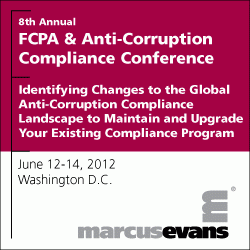In a concerted effort to enhance its ability to monitor energy markets for possible anti-competitive or manipulative conduct, FERC has undertaken a number of separate initiatives to strengthen its market surveillance capabilities over electric power and natural gas markets. Among the areas of focus, FERC has been especially keen on obtaining data and market information on a real-time, or near real-time, basis, which is in contrast to FERC’s traditional collection of data through quarterly or annual reports submitted well after-the-fact. FERC has also been intent on gathering data outside of organized wholesale electric markets.
These initiatives include:
- On February 16, 2012, FERC Chairman Jon Wellinghoff announced the creation of a new Division of Analytics and Surveillance to the Office of Enforcement. Described by the Chairman as staffed with “geeks and wonks”, the Division is intended to provide continuous, real-time market surveillance and data analysis of physical gas and electric power markets and of related financial products. The Division also is intended to develop and implement surveillance tools to detect potential market manipulation, anticompetitive behavior, and other anomalous activity.
- Beginning in August 2012, FERC enacted a rule to require Regional Transmission Organizations (RTO) and Independent System Operators (ISO) to electronically deliver to FERC non-public data on a rolling basis, seven days after creation. Specifically, FERC requires RTOs and ISOs to provide: market participant names and pricing points; virtual offers and bids; capacity market offers, awards, and prices; marginal cost estimates; financial transmission rights, or FTR, data; pricing data for interchange transactions; supply offers and demand bids; energy and ancillary services awards; resource output; day-ahead generation and load shift factors associated with constraints; internal bilateral contracts; and uplift charges and credits. FERC allowed a phased implementation, with only certain data required August 2012, leading up to full implementation by February 2013. This data collection is intended to supplement ongoing market monitoring efforts by the RTOs’ and ISOs’ market monitors.
- FERC has also taken efforts to enhance its more traditional forms of reporting, including extending FERC’s Electric Quarterly Report (EQR) requirements to non-public utility entities that make sales above a 4,000,000 MWh threshold under Section 220 of the Federal Power Act (FPA). These non-public utility entities—which generally consist of governmentally-owned entities, such as federal power marketing administrations, municipal utilities, public utility districts, and coops—have traditionally been exempt from FERC’s EQR filing requirements. In the Energy Policy Act of 2005, Congress granted FERC increased authority over these entities in order to improve market transparency, as non-public utility entities represent large portions of the market, particularly in areas of the country outside of organized markets. In the same order, FERC also increased the amount of data required of all EQR filers to include individual trade dates, whether a transaction was reported to an index publisher, the broker or exchange used for a transaction, and e-Tag IDs associated with individual transactions. In a separate order issued in February 2012, FERC also indicated it will consider requiring EQR filers to report electric “buy-sell” transactions, termed by FERC as “simultaneous exchanges”.
- FERC is also in the process of considering a rule that proposes to require theNorth American Electric Reliability Corporation (NERC) to provide FERC staff with access to the complete set of non-public e-Tag data. (Notably, NERCresponded to the Commission’s proposal by noting that other entities, and not NERC, maintained the desired e-Tag information.) When viewed in conjunction with the new requirement to report e-Tag IDs in the EQRs, it is clear that FERC intends to associate the broader set of e-Tag data with parties’ transaction reports in an effort to understand how power is transacted and scheduled.
- Finally, on October 15, 2012, FERC Staff issued a set of proposed metrics that would compare the performance of market performance in areas outside of organized wholesale electric markets with performance in organized markets. As part of this effort, FERC Staff issued a new report, FERC-922, that would collect information from utilities outside of organized markets. Requested information includes price data and information relating to reliability, transmission planning, requests for service, and system capacity. Staff stated it will use this information to help develop a common set of metrics for both RTO/ISO markets and non-RTO/ISO markets, and for evaluating market performance thereafter. FERC Staff noted that it could not require many non-public utility entities to provide such information but requested such entities to comply as part of “a voluntary and collaborative process”.
Taken as a whole, these efforts show an agency intent on gaining a deeper and more granular perspective on energy markets and a better understanding of how those markets function day-to-day.
© 2012 Bracewell & Giuliani LLP




